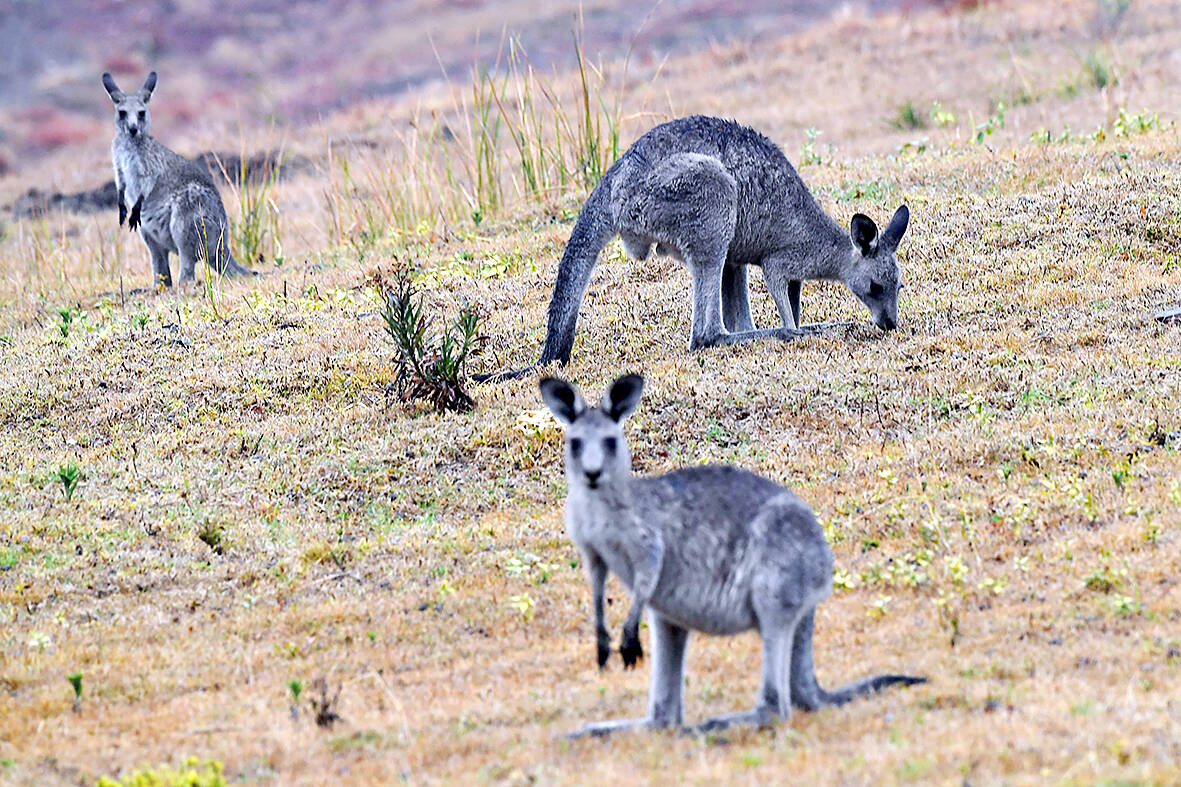Australia doesn’t exist. That’s at least according to Bing search results for some users on Wednesday when the Microsoft search engine cited long-running Internet conspiracy theories denying the existence of the country.
Several very real Australian users on Bluesky and Mastodon reported that when they searched for “does Australia exist” on Bing, it would come back with an emphatic “No” written in a text box before the link results.
“Bing is denying the existence of Australia,” the technology reporter Stilgherrian posted on Bluesky on Wednesday.

Photo: AFP
One user replied: “It’s buying into conspiracy theories.” Another asked: “Does that mean I don’t have to pay my bills?”
Some were able to replicate the result while others found Bing confirming that Australia does, in fact, exist.
One user pointed out that running the regular search and the AI search showed Bing Chat contradicting the search result.
The result appears in regular Bing searches, rather than the conversational searches Microsoft has integrated with its large language model artificial intelligence. Searches using Microsoft’s AI confirm the existence of Australia.
“Yes, Australia is a real country,” Bing co-pilot responded on Thursday.
“It is a sovereign nation that comprises the mainland of the Australian continent, the island of Tasmania, and numerous smaller islands.
“However, there are some conspiracy theories that claim Australia doesn’t exist. These theories suggest that the country was invented by the British government as an excuse to execute tens of thousands of prisoners … These theories are not true and have been debunked by scientific evidence.”
A spokesperson for Microsoft said the issue had been rectified. “Thank you for bringing this to our attention,” the spokesperson said. “We’ve investigated this query and have rolled out a fix to address it.”
Guardian Australia was unable to replicate the result in Bing’s regular search on Thursday. One of the top Bing search results points to a Guardian article from 2018 mentioning that the part-joke conspiracy had been circulating on social media after originating on Reddit in 2017.
A since-deleted post shared 20,000 times on Facebook at the time claimed Australia is “one of the biggest hoaxes ever created.”
But the conspiracy reportedly dates back even further back to 2006, when a user on the Flat Earth Society forum reportedly claimed everything about Australia was made up and everyone who claimed to be Australian were “secret government agents.”

Growing up in a rural, religious community in western Canada, Kyle McCarthy loved hockey, but once he came out at 19, he quit, convinced being openly gay and an active player was untenable. So the 32-year-old says he is “very surprised” by the runaway success of Heated Rivalry, a Canadian-made series about the romance between two closeted gay players in a sport that has historically made gay men feel unwelcome. Ben Baby, the 43-year-old commissioner of the Toronto Gay Hockey Association (TGHA), calls the success of the show — which has catapulted its young lead actors to stardom -- “shocking,” and says

The 2018 nine-in-one local elections were a wild ride that no one saw coming. Entering that year, the Chinese Nationalist Party (KMT) was demoralized and in disarray — and fearing an existential crisis. By the end of the year, the party was riding high and swept most of the country in a landslide, including toppling the Democratic Progressive Party (DPP) in their Kaohsiung stronghold. Could something like that happen again on the DPP side in this year’s nine-in-one elections? The short answer is not exactly; the conditions were very specific. However, it does illustrate how swiftly every assumption early in an

Inside an ordinary-looking townhouse on a narrow road in central Kaohsiung, Tsai A-li (蔡阿李) raised her three children alone for 15 years. As far as the children knew, their father was away working in the US. They were kept in the dark for as long as possible by their mother, for the truth was perhaps too sad and unjust for their young minds to bear. The family home of White Terror victim Ko Chi-hua (柯旗化) is now open to the public. Admission is free and it is just a short walk from the Kaohsiung train station. Walk two blocks south along Jhongshan

Jan. 19 to Jan. 25 In 1933, an all-star team of musicians and lyricists began shaping a new sound. The person who brought them together was Chen Chun-yu (陳君玉), head of Columbia Records’ arts department. Tasked with creating Taiwanese “pop music,” they released hit after hit that year, with Chen contributing lyrics to several of the songs himself. Many figures from that group, including composer Teng Yu-hsien (鄧雨賢), vocalist Chun-chun (純純, Sun-sun in Taiwanese) and lyricist Lee Lin-chiu (李臨秋) remain well-known today, particularly for the famous classic Longing for the Spring Breeze (望春風). Chen, however, is not a name